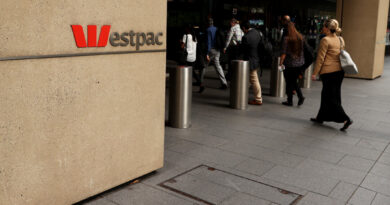Democratic Senator Pushing Trump Trade Representative to Impose Tariffs on Australia
Australian beef was significantly impacted by the Trump administration’s 10 percent baseline tariffs.
Senator Mark Warner, a U.S. Democrat, questioned Trump’s Trade Representative Jamieson Greer about the recent tariffs imposed on Australian exports, noting that they undermine both U.S.-Australia relations and the AUKUS agreement.
On April 2, U.S. President Donald Trump introduced the “Liberation Day” tariffs, including a 10 percent baseline tariff on all imports to the United States, affecting Australia’s profitable beef trade.
During a Senate hearing in Washington on April 8, Warner raised concerns with Greer.
“We have a trade surplus with Australia,” Warner pointed out.
“We have a free trade agreement.
“They are an incredibly important national security partner. Why were they hit with a tariff?” Warner questioned, wondering why Australia had to face even the “least bad” tariff, let alone any tariff.
Greer explained that the Trump administration was addressing a $1.2 trillion annual trade deficit left by the Biden administration.
“We should be excelling in Australia,” he stated, referring to a term in sports where teams continue to score points even after securing victory.
“Despite the agreement, they restrict our beef and pork, and are planning measures against our digital companies. It’s unbelievable.”
The digital issue relates to Australia’s News Media Bargaining Code, a pioneering law that required major tech firms to pay for content from news outlets.
In December, the Australian government announced plans to amend the code to enable penalties for companies that do not reach content agreements. This adjustment was in response to Meta’s decision not to renew lucrative content deals.

Jamieson Greer, President Donald Trump’s nominee to be the U.S. Trade Representative, testifies during his Senate Finance Committee confirmation hearing at the Dirksen Senate Office in Washington on Feb. 6, 2025. Kayla Bartkowski/Getty Images
Cow Concerns
Australia initially expressed apprehension about importing U.S. meat due to concerns about mad cow disease, leading to a ban imposed in 2003 after a Canadian cow was diagnosed with the illness.
The potential cost of mad cow disease affecting Australia’s cattle industry was estimated to reach billions of dollars and would necessitate significant culling.
Australia currently permits the import of cooked U.S. meat products, with the ban on fresh meat lifted in 2019.
However, U.S. producers must still adhere to Australia’s biosecurity certification regulations, which require that all cattle must have been in the country of origin “continuously” since birth.
The U.S. is seeking exemptions for this rule, as their cattle herds sometimes include Canadian and Mexican stock.
This exemption is still under evaluation.
Greer criticized the rejection of fresh meat as “unsubstantiated” and based on “false science.”
The Trump administration has similarly taken a firm stance regarding similar regulations in Argentina and the UK, which bar U.S. beef due to concerns about mad cow disease.




